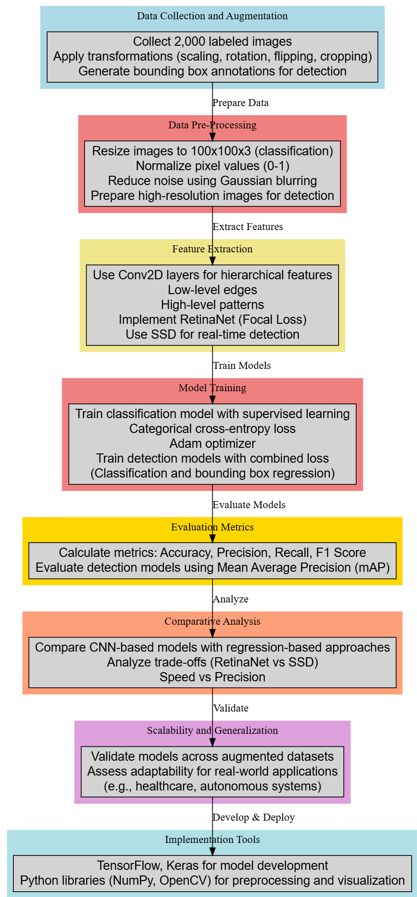Enhancing Image Classification and Detection with RetinaNet and SSD: A Comparative Analysis
DOI:
https://doi.org/10.70162/fcr/2024/v2/i1/v2i1s05Keywords:
Amazon, sentiment analysis, product review, feature extraction, machine learningAbstract
E-commerce platforms generate massive amounts of user-generated reviews, making sentiment analysis a crucial tool for understanding customer feedback. This study evaluates the effectiveness of traditional machine learning, deep learning, and Transformer-based approaches for sentiment classification of Amazon product reviews. Models including Multinomial Naive Bayes (MNB), Random Forest (RF), Long Short-Term Memory (LSTM), Convolutional Neural Networks (CNN), and fine-tuned BERT were analyzed. Reviews were preprocessed, and sentiment labels were derived from star ratings. Metrics such as Accuracy, Precision, Recall, F1-Score, and Area Under the Curve (AUC) were calculated to compare performance. Results revealed that the fine-tuned BERT model outperformed all others with an Accuracy of 97.4%, Precision of 96.8%, Recall of 98.2%, F1-Score of 97.5%, and AUC of 98.5%. Traditional ML models like MNB and RF lagged behind, achieving accuracies of 82.3% and 88.6%, respectively. This study highlights the superiority of Transformer-based architectures for sentiment analysis tasks and provides insights for future research in leveraging advanced NLP techniques.

Downloads
Published
Issue
Section
License

This work is licensed under a Creative Commons Attribution 4.0 International License.
Public Licensing Terms
This work is licensed under a Creative Commons Attribution 4.0 International License (CC BY 4.0).
You are free to:
- Share: Copy and redistribute the material in any medium or format.
- Adapt: Remix, transform, and build upon the material for any purpose, even commercially.
Under the following terms:
- Attribution: You must give appropriate credit, provide a link to the license, and indicate if changes were made. You may do so in any reasonable manner, but not in any way that suggests the licensor endorses you or your use.
To view a copy of this license, visit http://creativecommons.org/licenses/by/4.0/.




